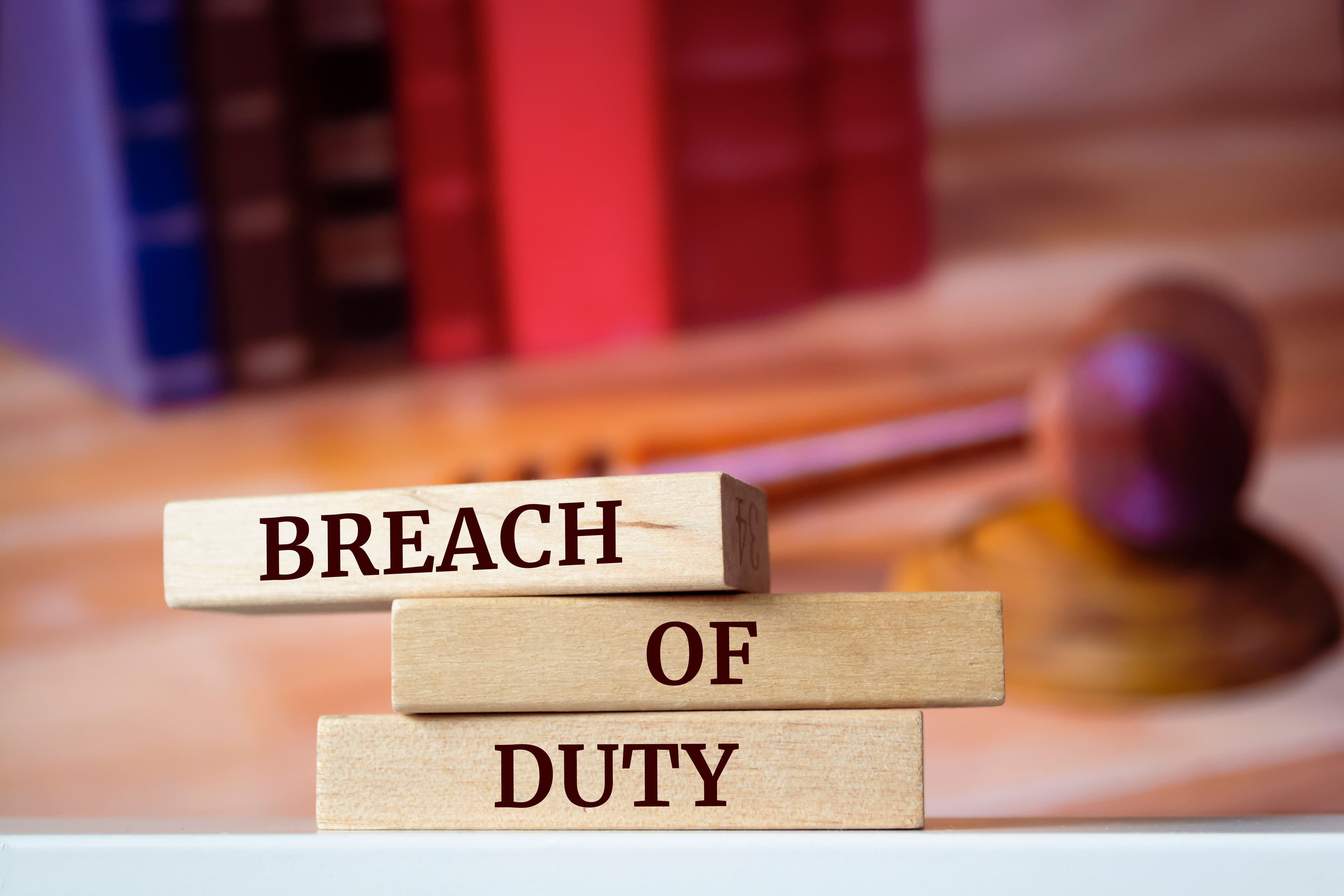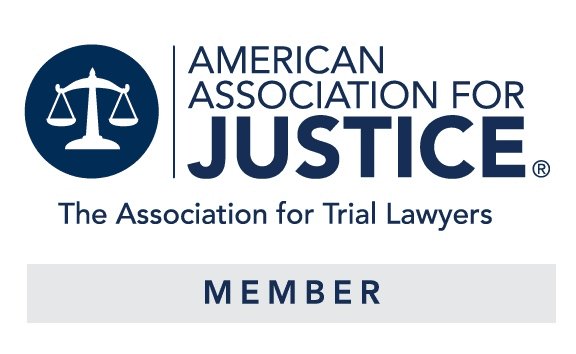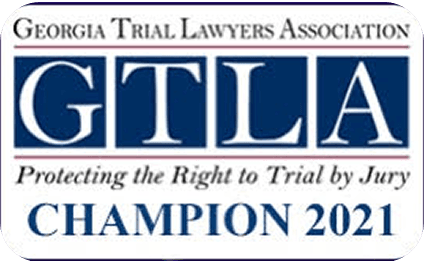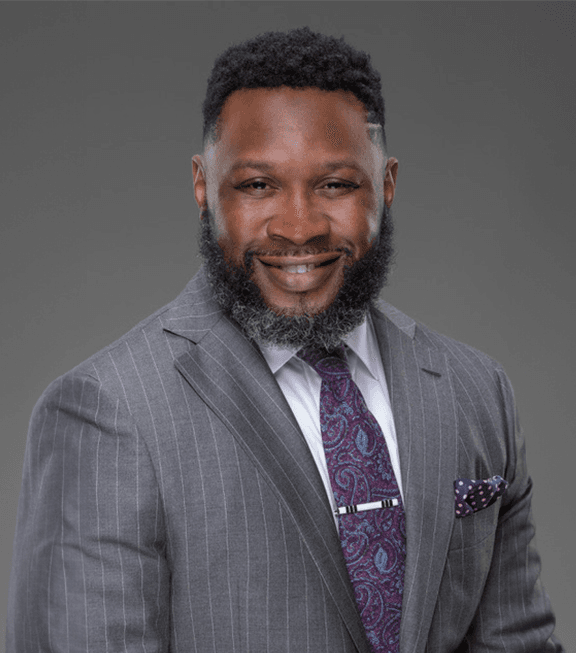
Breach of Duty
“Duty of care” and “breach of duty” are two essential components of any personal injury claim based on negligence. These elements are deeply interconnected—you could say they’re two sides of the same coin.
Once you establish that the defendant owed a duty of care, you must prove they breached that duty, along with other elements of negligence, to succeed in your case.
Breach of Duty in the Context of a Negligence Claim
To prevail in a Georgia personal injury claim based on negligence, you must generally prove the following four elements:
 Duty of Care – The defendant owed you a legal duty.
Duty of Care – The defendant owed you a legal duty.
 Breach of Duty – The defendant failed to meet that duty.
Breach of Duty – The defendant failed to meet that duty.
 Injury – You suffered actual harm or damages.
Injury – You suffered actual harm or damages.
 Causation – The defendant’s breach caused your injury.
Causation – The defendant’s breach caused your injury.
In most cases, breach of duty is the most contested issue. If you believe someone’s carelessness caused your injury, contact a Georgia personal injury attorney at Lawson Personal Injury Attorneys for guidance.
Duty of Care and the “Reasonable Person” Standard
The duty of care typically refers to the legal obligation to act with reasonable caution to avoid causing harm to others. This is determined using the reasonable person standard, which asks:
“What would a reasonable person have done under the same circumstances?”
However, not all duties of care are the same. Certain individuals or entities may owe a higher duty of care due to their professional or legal responsibilities.
Elevated Duties of Care
In personal injury law, several professions and situations impose elevated standards of care, including:
 Healthcare providers must treat patients with reasonable skill and competence.
Healthcare providers must treat patients with reasonable skill and competence.
 Landlords must keep their properties safe for tenants and lawful visitors.
Landlords must keep their properties safe for tenants and lawful visitors.
 Product manufacturers must ensure their products are reasonably safe when used as intended.
Product manufacturers must ensure their products are reasonably safe when used as intended.
 Common carriers (like bus or train services) must take all necessary precautions for passenger safety.
Common carriers (like bus or train services) must take all necessary precautions for passenger safety.
 Schools must maintain a secure environment for students.
Schools must maintain a secure environment for students.
 Caregivers for children, elderly individuals, or those with disabilities must exercise heightened diligence.
Caregivers for children, elderly individuals, or those with disabilities must exercise heightened diligence.
These elevated duties are context-specific and may significantly affect how a personal injury case is handled.
Breach of Duty by Omission
A breach by omission occurs when someone fails to do something they had a duty to perform. Examples include:
 A landlord failing to repair known property hazards.
A landlord failing to repair known property hazards.
 A doctor ignoring or failing to investigate serious patient symptoms.
A doctor ignoring or failing to investigate serious patient symptoms.
 An employer neglecting to provide workers with safety gear.
An employer neglecting to provide workers with safety gear.
 A dog owner failing to restrain a dangerous dog.
A dog owner failing to restrain a dangerous dog.
 A municipality failing to repair a dangerous road condition.
A municipality failing to repair a dangerous road condition.
Such omissions can form the basis of a valid personal injury claim.
Breach of Duty by Commission
A breach by commission occurs when someone takes an action they were obligated not to take. Examples include:
 A property owner placing dangerous obstacles in walkways.
A property owner placing dangerous obstacles in walkways.
 A medical professional performing an unnecessary or harmful procedure.
A medical professional performing an unnecessary or harmful procedure.
 A government agency installing confusing or unsafe traffic signage.
A government agency installing confusing or unsafe traffic signage.
 A dog owner knowingly releasing an aggressive dog near guests.
A dog owner knowingly releasing an aggressive dog near guests.
These types of breaches are often easier to prove than omissions, especially when physical evidence or documentation is available.
Expert Testimony and Breach of Duty
In complex cases, proving a breach of duty may require expert witnesses. These experts help define the standard of care and demonstrate how the defendant’s conduct fell short.
Common types of expert testimony include:
 Medical experts in surgical or diagnostic error cases.
Medical experts in surgical or diagnostic error cases.
 Engineers and product designers in defective product claims.
Engineers and product designers in defective product claims.
 Safety professionals in workplace injury or construction site cases.
Safety professionals in workplace injury or construction site cases.
 Accident reconstructionists in serious car accident claims.
Accident reconstructionists in serious car accident claims.
 Building safety consultants in slip-and-fall incidents.
Building safety consultants in slip-and-fall incidents.
Expert opinions often carry significant weight with judges and juries and can be critical in establishing negligence.
Negligence Per Se and Breach of Duty
Negligence per se simplifies the process of proving breach of duty. If the defendant violated a law or safety regulation designed to prevent the type of harm that occurred, that violation is automatically considered a breach of duty.
For example, if a driver runs a red light and causes an accident, the violation of traffic law may establish breach of duty without further analysis.
You would still need to prove causation and damages to recover compensation.
Why Legal Representation Matters in Complex Negligence Cases
While you may not need a lawyer for minor incidents without injury, complex or high-damage personal injury cases almost always benefit from experienced legal counsel. Establishing a breach of duty can be difficult without thorough legal knowledge and resources.
If you suspect you may have a negligence claim, contact Lawson Personal Injury Attorneys to schedule a free initial consultation. Our team can evaluate your case and help you gather the evidence needed to prove liability and seek full compensation.
Call us today at (678) 446-3655 to get started.
Georgia Personal Injury Lawyers
We focus exclusively on serious personal injury cases, including:
Assault Injuries
Bad Faith Insurance
Bicycle Accident
Brain Injury
Bus Accidents
Car Accidents
Catastrophic Injuries
Child Injuries
Construction Accidents
Dog Bites
If your life was disrupted by someone else's negligence, we're here to restore your power through the law.











